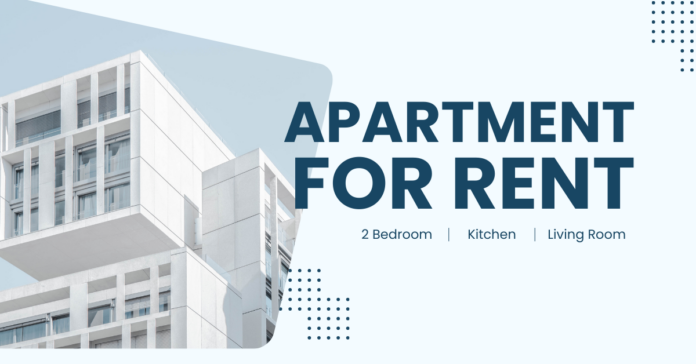Introduction
Renting an apartment for the first time can be exciting yet overwhelming. From budgeting to signing a lease, the process involves multiple steps that require careful planning. Knowing what to expect can help you avoid common mistakes and secure the best rental for your needs. This guide will walk you through the essential steps to renting an apartment, ensuring a smooth experience from start to finish.
Step 1: Determine Your Budget
Before searching for an apartment, it’s crucial to set a realistic budget. Experts recommend spending no more than 30% of your monthly income on rent.
How to Calculate an Affordable Rent
- Take your monthly income before taxes and multiply by 0.30.
- Deduct fixed expenses (student loans, car payments, insurance, groceries, etc.).
- Consider savings for emergencies and future financial goals.
Additional Costs to Consider
Besides rent, factor in other expenses such as:
- Security deposit (usually one to two months’ rent)
- Utilities (electricity, water, internet, gas)
- Renter’s insurance (protects your belongings against damage or theft)
Step 2: Choose the Right Location
Location is one of the most critical factors when renting an apartment. The right neighborhood should match your lifestyle and needs.
Factors to Consider
- Proximity to Work/School: Reduce commute time and transportation costs.
- Public Transport Access: If you don’t own a car, check for nearby bus or train stations.
- Safety & Crime Rate: Research neighborhood crime statistics online.
- Nearby Amenities: Consider grocery stores, restaurants, parks, and entertainment options.
Step 3: Identify Your Must-Have Features
Create a list of features you need in an apartment to narrow your search.
Essential vs. Optional Amenities
- Essential: Secure building, heating/air conditioning, in-unit laundry, parking
- Optional: Gym, swimming pool, pet-friendly policies, furnished units
Evaluating Safety and Security
- Check for security cameras and gated entry.
- Ask about emergency maintenance services.
Step 4: Start Your Apartment Search
Now that you know your budget and preferences, begin searching for available rentals.
Best Online Platforms for Apartment Hunting
- Zillow (www.zillow.com)
- Apartments.com (www.apartments.com)
- Craigslist (www.craigslist.org) (Be cautious of scams!)
Avoiding Rental Scams
- Never send money before visiting an apartment.
- Beware of deals that seem too good to be true.
- Confirm the landlord’s identity before making payments.
Step 5: Schedule Apartment Tours
Seeing an apartment in person helps you evaluate its condition and suitability.
What to Look for During a Visit
- Inspect the unit: Check for leaks, pests, mold, and broken appliances.
- Test utilities: Turn on lights, faucets, and heating/cooling systems.
- Assess noise levels: Visit at different times of the day.
Questions to Ask the Landlord
- What is included in the rent (utilities, parking, maintenance)?
- How are repairs and maintenance requests handled?
- What is the penalty for breaking the lease early?
Step 6: Understand Lease Agreements
A lease is a legal contract between you and the landlord. Understanding it is crucial before signing.
Key Lease Terms to Review
- Lease length (month-to-month vs. annual)
- Rent due dates and late fees
- Security deposit refund policy
- Subleasing rules
Your Rights as a Tenant
- Landlords cannot increase rent unexpectedly during a lease term.
- You have the right to a habitable living environment.
- Security deposits must be returned within a specified timeframe after moving out.
Step 7: Submit a Rental Application
Once you find an apartment you like, the next step is applying.
Required Documents
- Government-issued ID (driver’s license, passport)
- Proof of income (pay stubs, bank statements, tax returns)
- Rental history and landlord references
- Credit report (some landlords may require a credit check)
How Landlords Assess Applications
- Credit Score: A score above 650 increases approval chances.
- Income Verification: Most landlords require you to earn at least 3x the rent.
- Rental History: Late payments or past evictions can hurt your chances.
Step 8: Pay Security Deposit and First Month’s Rent
Once approved, you’ll need to pay the required fees before moving in.
Breakdown of Typical Upfront Costs
- Security deposit: Refundable, used to cover damages beyond normal wear and tear.
- First month’s rent: Typically due upon lease signing.
- Pet deposit: If applicable, some landlords charge extra for pets.
Understanding Refundable vs. Non-Refundable Deposits
- Refundable: Security deposits (if no damages are found upon move-out).
- Non-refundable: Application fees, pet fees, and administrative charges.
Step 9: Move-In Preparation
Creating a Move-In Checklist
- Confirm move-in date with the landlord.
- Take photos of the apartment’s condition before moving in.
- Notify previous landlord (if applicable) and arrange moving services.
Setting Up Utilities and Renters’ Insurance
- Call utility companies to set up electricity, gas, and internet.
- Purchase renter’s insurance to protect your belongings.
Step 10: Maintaining a Good Landlord-Tenant Relationship
Tips for Responsible Renting
- Pay rent on time each month.
- Follow building rules and noise policies.
- Maintain cleanliness and report maintenance issues promptly.
Handling Maintenance Requests and Disputes
- Submit written requests for repairs.
- Keep records of all communication with your landlord.
- If conflicts arise, refer to tenant rights organizations or legal advisors.
Conclusion
Renting an apartment for the first time can be a smooth process with the right preparation. By setting a budget, researching locations, inspecting properties, and understanding lease agreements, you can make informed decisions. Always read the lease carefully before signing and maintain good communication with your landlord to ensure a positive renting experience.
For more housing tips, visit ArticleTable.
Related Resources
For additional guidance on renting and housing laws:
- Sunray Click
- Tenant rights organizations in your city
By following this step-by-step guide, you can find the perfect apartment while avoiding common rental pitfalls!
